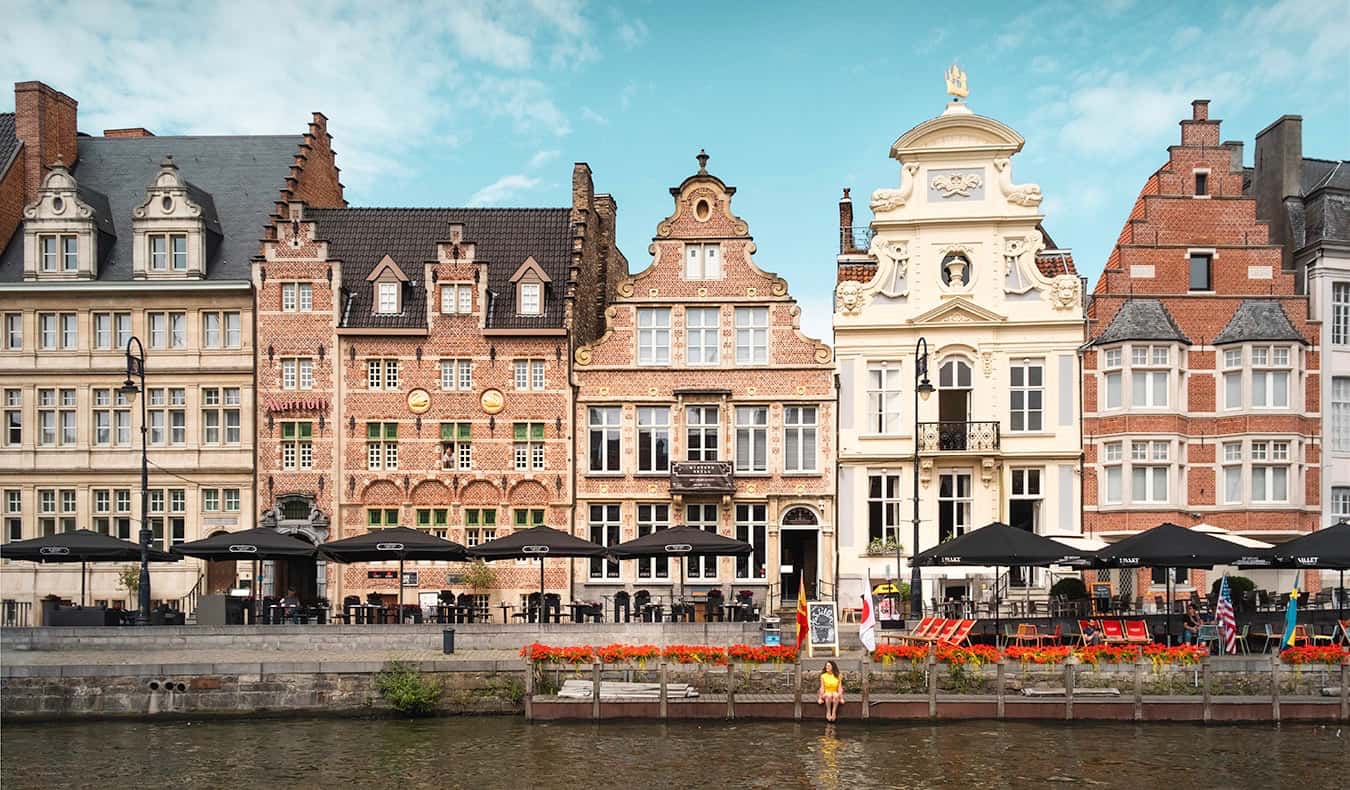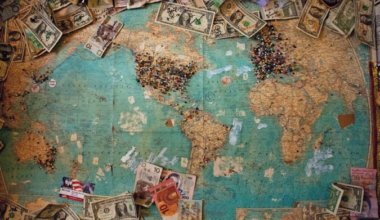
Posted: 3/1/2021 | March 1st, 2021
I love learning languages. They unlock new opportunities and open all kinds of doors when you visit a new destination. Even just learning a few words and phrases and deepen your travels immensely. In this guest post, Michele from The Intrepid Guide highlights the top reasons why you should invest in learning a new language before your next trip.
My first trip outside of Australia was to Italy. I had dreamed of visiting ever since I was little. I was so excited and nervous about my first big adventure that I planned each day in detail. I booked skip-the-queue tickets and outlined my whole itinerary so I wouldn’t miss a thing.
But what I didn’t account for was the language.
I’m the daughter of an Italian immigrant but I didn’t learn Italian growing up. We spoke English at home; the only Italian words I knew I could count on one hand.
While I had a great trip to Italy and saw amazing ancient monuments and world-famous art, I only scratched the surface of what Italy has to offer. I could barely buy my tickets in Italian let alone engage in friendly conversation with the locals. I felt insecure in my decisions and annoyed that I hadn’t learned Italian beforehand.
When I got back to Australia, that’s exactly what I did. Deciding to learn Italian changed my life forever, including where I lived, how I traveled, and my career.
Learning the local language is one of the best decisions you can make before any trip. Learning even just a few phrases allows you to communicate and experience travel in a different way. It adds depth and nuance to your trip, making it more memorable while also opening the door to new opportunities.
Here are 6 reasons you should learn the local language before your next trip.
1. You’re Less Likely to Be Ripped Off
One of the easiest ways to ruin a trip is being stuck somewhere or needing help but feeling entirely helpless because you don’t speak the local language.
Then there are the moments when you know you’re being ripped off but don’t have a clue how to get yourself out of it. This is especially true with taxi drivers.
Knowing the local language helps you in two ways:
First, you become instantly more likable to the other person. People don’t tend to rip off people they like. In fact, after a bit of small talk, you might even get a discount or some other kind of special service.
For example, during a language holiday in Florence, I had a friendly chat with the owner of a high-end store for a good ten minutes. He asked why I was there, then shared some interesting history about the famous Duomo (cathedral) located nearby, and I told him how much I loved Italy.
Before leaving, he gave me a beautiful zipper envelope pouch for no other reason than because he enjoyed our conversation. Years later, I still use the pouch and reminisce about that special day in Florence. The rest of that trip was a blur except for this unexpected interaction.
The second reason you should dive straight into the local language is to demonstrate that you have some level of understanding of how “things work” locally. The other person may assume that you’ve visited before and know your way around and how much things cost. This gives them less reason and opportunity to take advantage of you because you’re demonstrating you’re savvier than the typical tourist.
Then there are the moments when you know you’re being ripped off but don’t have a clue how to get yourself out of it. For example, some taxi drivers at Rome’s Ciampino Airport run a racket where they grossly overcharge tourists going into the historical center. An American friend of mine experienced this first hand during her visit.
Luckily, with her basic Italian, she managed to find another taxi driver willing to charge her the correct flat fee and avoided being ripped off.
Before I leave home, I always make sure to learn at least these two key phrases:
- How much does it cost?
- That’s too expensive!
These work hand in hand to show the other person you’re not one to be taken advantage of.
2. It’s Easier to Make New Friends
Meeting new people and making friends is one of the biggest rewards of traveling. And it all starts with a simple greeting like Ciao!, Bonjour!, !Hola¡, Hej!, Konnichiwa!, or Ni Hao!
On a girls’ trip to Sicily, I was traveling with four of my closest English-speaking friends, who all spoke various levels of Italian. On our first night, we found a restaurant located off the main street. It was overflowing with locals, with no tourist menu in sight. Seated across from us was a small family. The head of the family, la mamma (named Maria), was intrigued by the five of us and invited me over for a chat. She was so interested in the story of how we all came to be in her hometown and this local restaurant.
After a brief conversation, all in Italian, our newly adopted mamma invited us around to her home the next day for afternoon tea! When we arrived, Maria welcomed us with two traditional homemade cakes. We stayed for a couple of hours, laughed, and took a photo together.
Before leaving, Maria gave us her recipes for both cakes. To this day, being invited into Maria’s home remains one of my most vivid and cherished travel memories.
When getting to know someone new and making friends, we often ask each other the same sorts of questions, for example, “What’s your name?,” “Where are you from?,” and “What [work] do you do?.” etc. The answers you give form your biography, which you will repeat more than you think. So, when picking up any new language, I learn my biography first. This way I can confidently initiate conversations and respond to these common questions. Sometimes the scariest part is starting a conversation, but if you know your bio inside out, this becomes less of an issue.
3. It’s the Right Thing to Do
The most important reason to learn the local language is that it’s polite. It doesn’t matter if you travel to the Netherlands or Norway, where people are known to speak excellent English — the thing to remember is that you’re a guest.
Think of it like you’re visiting a friend’s house. Do you wipe your shoes before entering or maybe even take them off? This sort of common decency comes naturally, without really thinking about it. But since we travel less often than we visit a friend’s home, it’s as if we forget how to be polite.
No one expects you to become fluent before a trip, so even if you aim to only learn “Do you mind if we speak English?” in the local language, this nice gesture will be better received than if you shout, “ENGLISH?!” (Shouting never makes anyone better understood anyway.)
4. People are Nicer to You
Making any sort of effort to speak the local language plays a big part in how people will treat you. Their whole demeanor will change if greeted in their native language. They may look pleasantly surprised or even compliment you.
You don’t need to be fluent either. Being “travel fluent” and just learning a few essential travel phrases goes a long way. More often than not, you’ll notice that people are more willing to go the extra mile for you because they see you’re trying to be respectful.
Plus, it’s also very endearing to hear the accent of someone trying to speak your language. Just think of your favorite foreign accent (maybe it’s French or Italian), and imagine someone thinking the same thing about you when you speak their language!
A great place to get started is by learning these five words/phrases:
- Hello
- Please
- Thank you
- I would like…
- Goodbye
Once you’ve mastered these, then try to expand your vocabulary. The more you learn, the more confident you’ll feel using the language.
5. You Get to Really Know a Place
Nelson Mandela famously said: “If you talk to a man in a language he understands, that goes to his head. If you talk to him in his own language, that goes to his heart.”
I love this quote because it perfectly sums up the power of speaking to someone in their mother tongue. Languages are like bridges: they unite us. When you speak to people in their language, you’re able to go below the surface of a destination and have an authentic experience.
I can’t tell you how many times I’ve bonded with complete strangers (especially in Italy, France, and Spain), who light up when I tell them I’m from Australia. They go on to tell me they have a cousin, brother, or some other relative who moved to Australia and how much they’d love to visit one day. It’s wonderful to hear their stories.
This also gives you the opportunity to learn about the place you’re visiting and the people who make it special. Before you know it, they’re sharing local tips and recommendations.
My suggestion is to make the most of seemingly inconsequential moments during your trip, so you can dig beneath the surface. For example, during your taxi ride from the airport to your hotel, ask the driver “Can you recommend a good restaurant?” or “Where is your favorite place in X?” You’ll be amazed at the variety of suggestions you’ll receive, many of which you won’t find in any tourist guide either.
6. It Could Change Your Life
With some of the local language under your belt, there’s no telling what sort of long-lasting effect it can have on you. It might inspire you to learn a particular language more seriously, motivate you to learn the local language before every trip you take, or even move somewhere!
My first trip to Italy was all it took for me to decide to start learning Italian seriously. I had such a wonderful time there and felt so at home and welcome that when I returned to Australia, I dedicated the next three years to studying Italian. When I reached fluency, I quit my job and moved to Rome, where I lived for three years, made new friends, learned a new culture, and adopted a healthy way to live.
It was the best time of my life. It even inspired me to create The Intrepid Guide, a travel and language-learning site designed to help travelers have equally amazing and life-changing trips, all thanks to the power of languages.
There is a misconception that learning a language is a difficult process. Fortunately, it doesn’t have to be. With the right resources, methods, and with a bit of patience, you can learn any language at any age.
This is why I created Intrepid Languages, a series of no-nonsense language courses specifically designed to get you speaking the local language ahead of your trip. No rote memorization oe fluff!
If you’ve read this far, then I know you’re serious about wanting to get the most out of your travel experiences. So, as a Nomadic Matt reader, I want to reward you with a special discount. Get 20% OFF any Intrepid Languages courses by using promo code NOMADICMATT at checkout. This includes Intrepid Italian, Intrepid Spanish, Intrepid French, Intrepid Norwegian, and more.
Learning a language is an investment. It will add depth to your travels and open so many doors that would otherwise have been closed. If you want to get beneath the surface of a destination, save money, and have a more memorable trip, then spend some time learning a language before you go. You won’t regret it!
Michele is “the guide” behind The Intrepid Guide, a travel and language-learning site designed to help readers enrich their travels through languages. Follow Michele on Instagram, Twitter, Facebook, and YouTube. (And don’t forget to use promo code NOMADICMATT at checkout for your special reader discount.)
Book Your Trip: Logistical Tips and Tricks
Book Your Flight
Find a cheap flight by using Skyscanner. It’s my favorite search engine because it searches websites and airlines around the globe so you always know no stone is being left unturned.
Book Your Accommodation
You can book your hostel with Hostelworld. If you want to stay somewhere other than a hostel, use Booking.com as it consistently returns the cheapest rates for guesthouses and hotels.
Don’t Forget Travel Insurance
Travel insurance will protect you against illness, injury, theft, and cancellations. It’s comprehensive protection in case anything goes wrong. I never go on a trip without it as I’ve had to use it many times in the past. My favorite companies that offer the best service and value are:
- SafetyWing (best for everyone)
- Insure My Trip (for those 70 and over)
- Medjet (for additional evacuation coverage)
Want to Travel for Free?
Travel credit cards allow you to earn points that can be redeemed for free flights and accommodation — all without any extra spending. Check out my guide to picking the right card and my current favorites to get started and see the latest best deals.
Need Help Finding Activities for Your Trip?
Get Your Guide is a huge online marketplace where you can find cool walking tours, fun excursions, skip-the-line tickets, private guides, and more.
Ready to Book Your Trip?
Check out my resource page for the best companies to use when you travel. I list all the ones I use when I travel. They are the best in class and you can’t go wrong using them on your trip.




